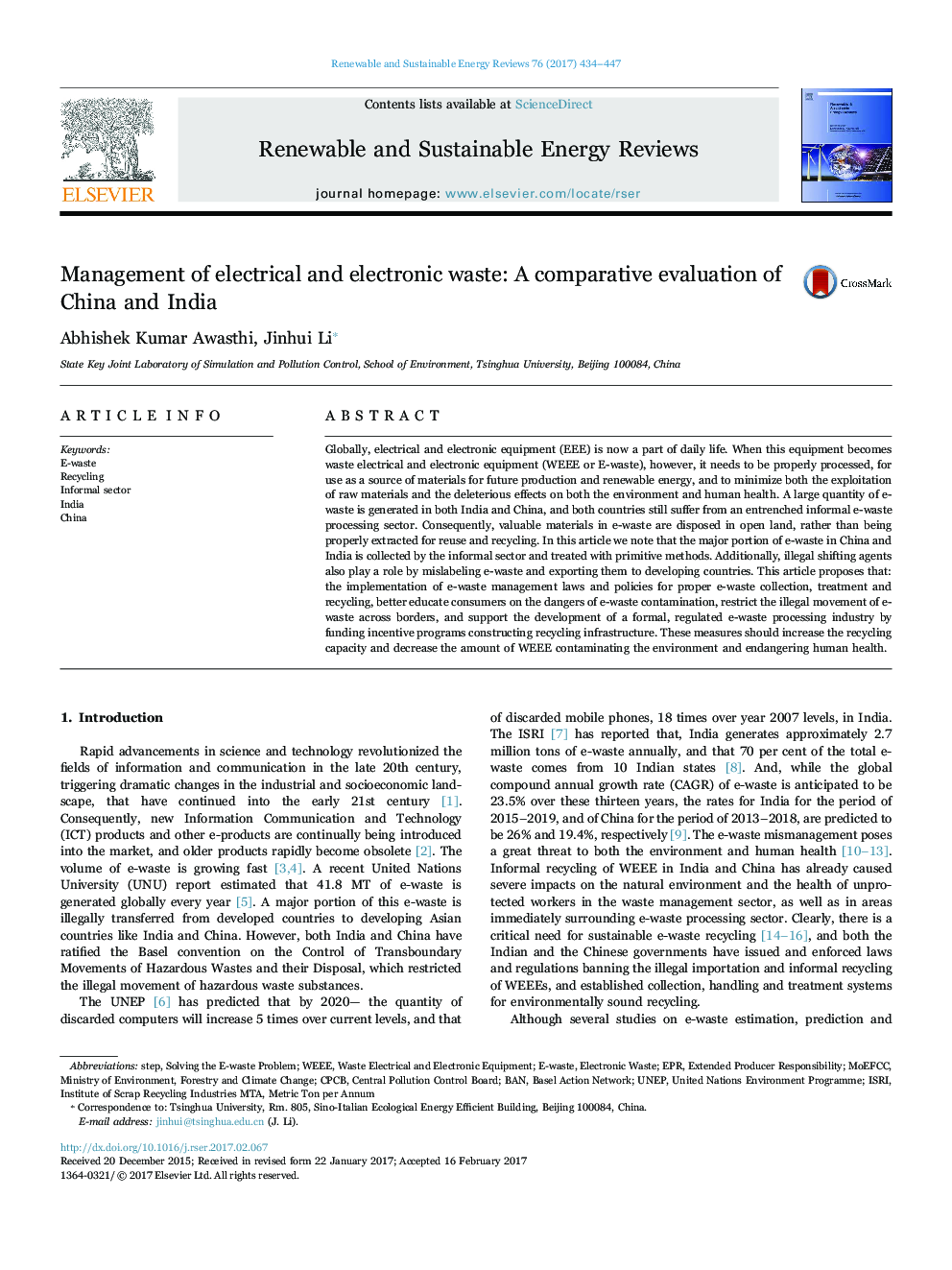| Article ID | Journal | Published Year | Pages | File Type |
|---|---|---|---|---|
| 5482169 | Renewable and Sustainable Energy Reviews | 2017 | 14 Pages |
Abstract
Globally, electrical and electronic equipment (EEE) is now a part of daily life. When this equipment becomes waste electrical and electronic equipment (WEEE or E-waste), however, it needs to be properly processed, for use as a source of materials for future production and renewable energy, and to minimize both the exploitation of raw materials and the deleterious effects on both the environment and human health. A large quantity of e-waste is generated in both India and China, and both countries still suffer from an entrenched informal e-waste processing sector. Consequently, valuable materials in e-waste are disposed in open land, rather than being properly extracted for reuse and recycling. In this article we note that the major portion of e-waste in China and India is collected by the informal sector and treated with primitive methods. Additionally, illegal shifting agents also play a role by mislabeling e-waste and exporting them to developing countries. This article proposes that: the implementation of e-waste management laws and policies for proper e-waste collection, treatment and recycling, better educate consumers on the dangers of e-waste contamination, restrict the illegal movement of e-waste across borders, and support the development of a formal, regulated e-waste processing industry by funding incentive programs constructing recycling infrastructure. These measures should increase the recycling capacity and decrease the amount of WEEE contaminating the environment and endangering human health.
Keywords
Related Topics
Physical Sciences and Engineering
Energy
Renewable Energy, Sustainability and the Environment
Authors
Abhishek Kumar Awasthi, Jinhui Li,
